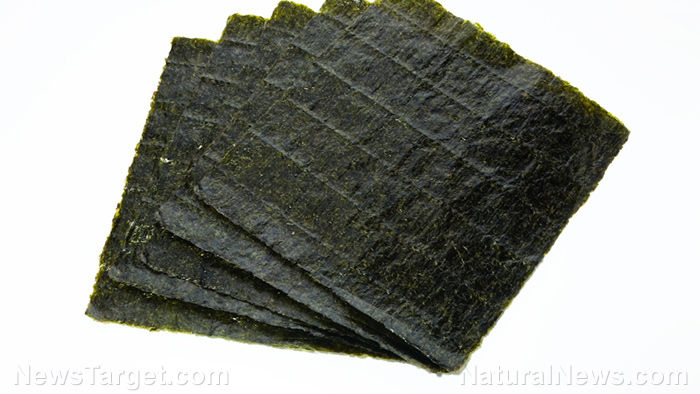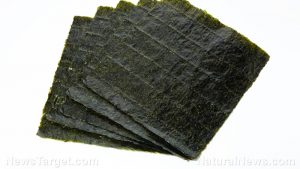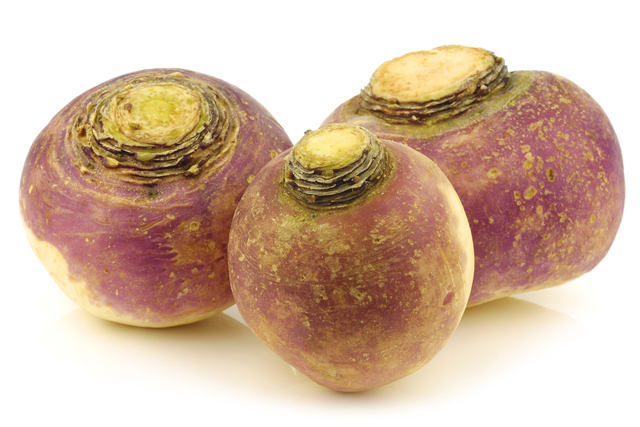Seaweed – sources, health benefits, nutrients, uses and constituents at NaturalPedia.com
06/27/2017 / By Jhoanna Robinson

Eating vegetables is good for the body and the mind, especially leafy ones such as spinach and broccoli. If, however, you are seeking an alternative to these greens that is as delicious and as high in nutritional value as the two mentioned above, try eating seaweed.
There exists over 10,000 species of seaweeds today, a testament to seaweeds’ different variations and classifications, of which the most popular is nori, a kind of seaweed that is used to make sushi.
The types of seaweed that are commonly eaten today comprise of:
- Green algae such as sea grapes and sea lettuce or ulva,
- Blue-green algae such as chlorella and spirulina,
- Brown algae such as arame, kelp, kombu, and wakame (the miso soup seaweed), and
- Red algae such as dulse, laver, and nori (the sushi seaweed).

List of known nutrients
- Alginic acid
- Antioxidants
- Calcium
- Carotenes
- Fucoidan
- Glutamate
- Iodine
- Iron
- Magnesium
- Manganese
- Phosphorus
- Potassium
- Selenium
- Sodium
- Vitamin A
- Vitamin B12
- Vitamin C
- Vitamin E
- Zinc
Medicinal uses for seaweed
If you are calorie-conscious, seaweed is a healthy choice for you. According to the 2010 Dietary Guidelines for Americans, seaweed contains the minimal amount of calories, from 15 calories in one and a half piece of kombu to 40 calories in four sheets of nori.
Seaweeds are rich in calcium, which is needed for good bone health and the proper operation of hormone secretion, muscle unction, and nerve transmission.
For the healthy production of red blood cells, you need both iron and vitamin B12. They can be obtained when you eat alaria and dulse, which are two types of Atlantic seaweed that are usually found off the cost of Maine.
The desire to achieve umami, or the fifth taste, by chefs and food aficionados, has led to the discovery of seaweeds’ glutamate content, which is essential for proper brain function.
Seaweeds contain many vitamins and minerals that contribute to the health of hair, skin, and nails. They also are important food to eat if you want to maintain that youthful look, as they have nutrients that have anti-aging properties.
Seaweeds can help you avoid chronic diseases such as cancer and digestive problems. It also helps get rid of radioactive elements in the body.
Body systems supported by seaweed
Seaweeds contain the polysaccharide fucoidan, which contributes to the proper functioning of the immune system and aids in proper cardiovascular function, leading to an overall longer life expectancy.
Ingesting seaweeds can improve your thyroid health, as they contain rich amounts of iodine.
Ways to use seaweed
The most common dish that can be made from seaweeds is sushi. For sushi recipe suggestions, visit this link.
Seaweeds can also be in powder form, which can work as additional flavoring to juices, smoothies, salads, rice, soups, or whole meals.
Where to learn more
- Seaweed and sexual health benefits
- Seaweed: Age-old New Food and Fuel of the Future
- Seaweed fibers boost weight loss
- Seaweed extract outperforms chemo drug in shrinking breast tumors – but without the toxic side effects
- Seaweed could hold key to natural weight loss
Summary
Seaweeds can help you avoid digestive problems and chronic diseases such as cancer.
Seaweeds contain fucoidan, which contributes to the proper functioning of the immune system.
Seaweeds contain many vitamins and minerals that contribute to the health of hair, skin, and nails.
Sources include:
Tagged Under: seaweed




















